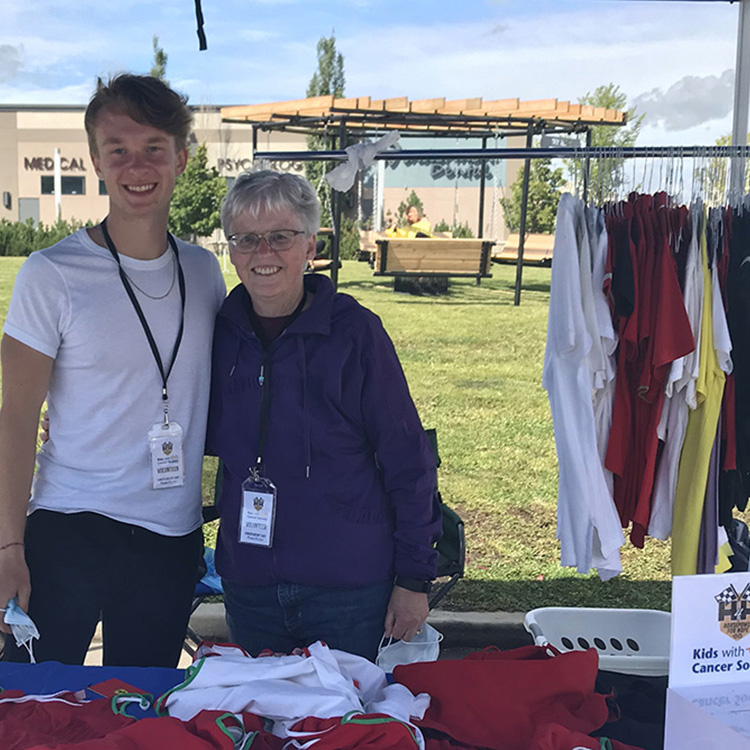Eric Weidmann

Bachelor of Commerce, Finance Major, 2nd Year
Course: CSL 350 (Winter 2021) with Instructor David Peacock
Who was your community partner and can you describe the project objectives?
Our community partner is EndPovertyEdmonton (EPE). Utilizing community based research, we conducted Zoom interviews for data collection with “key influencers (government, community or non-profit, faith, business etc.) to understand perceptions around their roles in tackling poverty in Alberta as a systemic issue” (from syllabus). Followed by analysis, this led to production of our research blog before the end of this term on the perspectives of a sample of Edmonton area leaders on poverty and its elimination.
EPE is a “community initiative working towards prosperity for all through advancing reconciliation, the elimination of racism, livable incomes, affordable housing, accessible and affordable transit, affordable and quality child care, and access to mental health services and addiction supports”. We were also co-educated by EPE staff, who brought detailed local knowledge of anti-poverty practice and research.
What was your biggest takeaway from your CSL placement?
My biggest takeaways from my placement are as follows.
- On CSL courses and placements:
My CSL placements, with Operation Friendship Seniors Society (OFSS) supporting homeless seniors last year and currently with EndPovertyEdmonton and its related community leaders, have been opportunities of a lifetime. Understanding the participatory value of going “all in”, I have reached outside my privileged world and been given rare opportunities to gain knowledge and insights in these communities and some of the individuals within them. The opportunity to integrate newfound knowledge and experiential application of that knowledge to a local in-need community is both memorable and invaluable.
- On community-based research (CBR):
Communication is a significant component in most aspects of our lives. When we ask questions and hold conversations with our community partners, especially on complex issues, sometimes the answers we get are not the answers we would expect. Sharing these answers can help guide systemic solutions.
How can you apply any newly gained knowledge/skills to your future endeavours (courses/employment/volunteering)?
Looking at lessons learned, gaining the knowledge to write a research blog will further expand my use of social media as an effective communication tool. From a professional standpoint, being able to highlight and succinctly communicate issues is invaluable as we are inundated with information.
From an interviewer perspective, CBR requires active listening, staying focused, remaining on point, probing to gain clarity and interpret underlying meaning to responses. It keeps us cognizant of the purpose at hand, and prevents being derailed to hidden agendas or other priorities. These are useful skills throughout life, as we interact with other individuals within our various circles and communities.
The organized, one-on-one approach of community-based research is effective in working with and being immersed into a community. The results of the findings and the resulting communication far exceed the confined, inside the lines approach that surveys have provided. I will be able to effectively use this approach in my volunteering with non-profits, employment and many aspects of my life in general. In the longer term, breaking the generational cycles of poverty and other social issues will be far more effective than reactive approaches. The application of systemic solutions can be applied directly in working with clients in the non-profit sector, where joint responsibility and accountability can lead to and actively promote change.
What are some of the ways that COVID-19 has affected your community partner or your placement?
My placement this term has meant no in-person meetings with community leaders. Zoom has its place, but this type of communication is not as powerful and lacks the impact that location within the community at issue provides us. When you’re immersed within the community, you gain the multi-sensory effect and understanding.
When I think of my placement last year with OFSS, that placement would not have been possible under the restrictions and safety requirements of COVID. Some of my greatest insights were gleaned through ad-hoc conversations with at-risk seniors while preparing food together, and then conversing while playing cards. Raised in an environment of privilege, the immersion into the community of homelessness was the education and opportunity of a lifetime. Fast forward just one year, and that placement would not have been possible due to COVID.